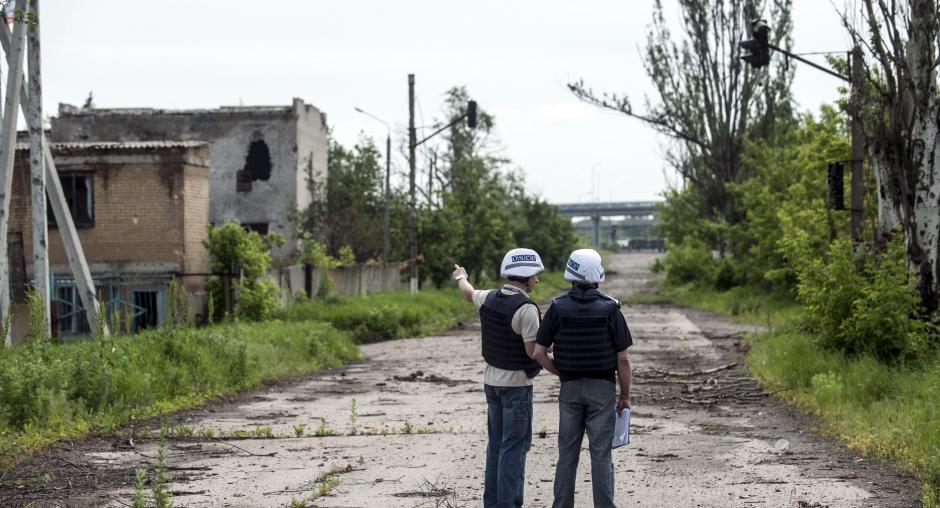Conflict prevention and resolution
The Organization’s main tools to address this cycle include its network of field operations and the Conflict Prevention Centre (CPC). The CPC acts, for example, as an OSCE-wide early warning focal point, facilitates dialogue, supports mediation and other conflict prevention and resolution efforts.
The activities of OSCE field operations in the area of conflict prevention and resolution include:
- Capacity building for local actors aimed at reducing potential drivers and sources of conflict;
- Facilitating exchanges between political and civic actors to address conflict risks at the earliest possible stage;
- Assisting with dialogue facilitation, mediation and confidence building activities between conflict-affected societies and communities;
- Monitoring the security situation in OSCE participating States;
- Assisting with confidence building;
- Supporting national crisis response plans.
The Court of Conciliation and Arbitration is mandated to settle, by means of conciliation or arbitration, disputes between States that are submitted to it. The OSCE High Commissioner on National Minorities strengthens the Organization’s early warning and conflict prevention capabilities by getting involved, at the earliest possible stage, in participating States where inter-ethnic tensions could lead to conflict. The High Commissioner also works on long-term conflict prevention activities, including through the protection and promotion of the rights of persons belonging to national minorities.
The OSCE is involved in the following conflict-related formats:
The Minsk process
Works to find a peaceful solution to the Nagorno-Karabakh conflict through the Minsk Group (co-chaired by France, the Russian Federation and the United States) and the Personal Representative of the OSCE Chairperson-in-Office on the Conflict Dealt with by the OSCE Minsk Conference.
The Transdniestrian settlement process
The "5+2" talks include the sides, the mediators - the Russian Federation, Ukraine and the OSCE - and the United States and the European Union as observers; a particularly important role is played by the Special Representative of the OSCE Chairperson-in-Office for the Transdniestrian Settlement as well as by the OSCE Mission to Moldova.
The Geneva International Discussions
Established following the 2008 conflict in Georgia, are co-chaired by the OSCE together with the United Nations and European Union. The OSCE co-chair, the Special Representative of the OSCE Chairperson-in-Office for the South Caucasus, together with the Head of the European Union Monitoring Mission in Georgia (EUMM), co-facilitates the meetings of the Incident Prevention and Response Mechanism (IPRM) in Ergneti, which address matters that affect the daily life of populations on the ground.
All press releases related to the Geneva International Discussions
All press releases related to the Incident Prevention and Response Mechanism (IPRM)

